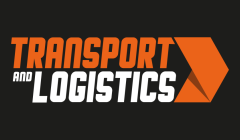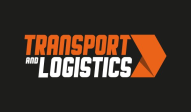Weybridge, United Kingdom, 25 September 2015 – CHEP, the world’s leading provider of pallet and container pooling solutions, is supporting the United Nations High Commissioner for Refugees (UNHCR) to perform an in-depth study of its global supply chain network to increase efficiency and reduce costs.
Vicente Escribano, Head of UNHCR’s Supply Management Logistic Service, said: “The efficiency of our supply chain is often literally a matter of life and death to the refugees and families we serve, so any improvements we can make could have a massive impact”.
“We approached CHEP as a global supply chain leader to ask if they would evaluate if and how improvements could be made to improve our logistics and associated costs. Working with CHEP is a great opportunity for UNHCR and CHEP providing its resources and expertise on a voluntary basis is a real bonus.”
UNHCR – the UN Refugee Agency – was established in 1950 by the United Nations General Assembly to help Europeans displaced by World War Two. Today, the agency is mandated to lead and co-ordinate activities worldwide to protect, and seek durable solutions for refugees.
UNHCR operates in 123 countries with a staff of more than 9,300, providing protection and assistance to more than 46 million refugees, returnees, internally displaced and stateless people. The budget has grown from US$300,000 in its first year to more than US$5 billion in 2014[1]. In 2014, UNHCR dealt with approximately 51.2 million people of concern: 33.3 million internally displaced people (IDPs) and 16.7 million refugees, plus another 10 million stateless people and more than 1.2 million asylum seekers.
CHEP provided its Plant Network Optimization (PNO) Team for the in-depth study, which is reviewing the current state of UNHCR resources to reduce the lead time required to service refugee camps. Currently CHEP’s PNO team is conducting a detailed analysis of UNHCR’s supply chain network in Africa.
UNHCR maintains a network of seven global stockpiles managed from distribution centers strategically located in Copenhagen (Denmark), Amman (Jordan), Dubai (UAE), Nairobi (Kenya), Isaka (Tanzania), Douala (Cameroon) and Accra (Ghana). If needed, UNHCR can ship core relief items (CRIs) from these stockpiles to assist up to 600,000 people within 72 hours. In 2014, UNHCR assisted over 15 million people in need.
CHEP’s Senior Vice President for Supply Chain, Carmelo Alonso Bernaola, said: “The PNO team in the US has been leading this initiative. They are highly experienced but the UNCHR project is unique compared to other projects they have conducted. The UNHCR study involves multi-country, air, sea and road transportation and multiple data sources; factors which greatly increase the scale and complexity of the study”.
The study will be completed by late 2015 with findings and recommendations presented to UNHCR shortly afterwards. Brambles Limited, the parent company of CHEP, supports the Ten Principles of the United Nations Global Compact in the areas of Human Rights, Labour, Environment and Anti-Corruption. Brambles became a signatory to the UN Global Compact in June 2013.




